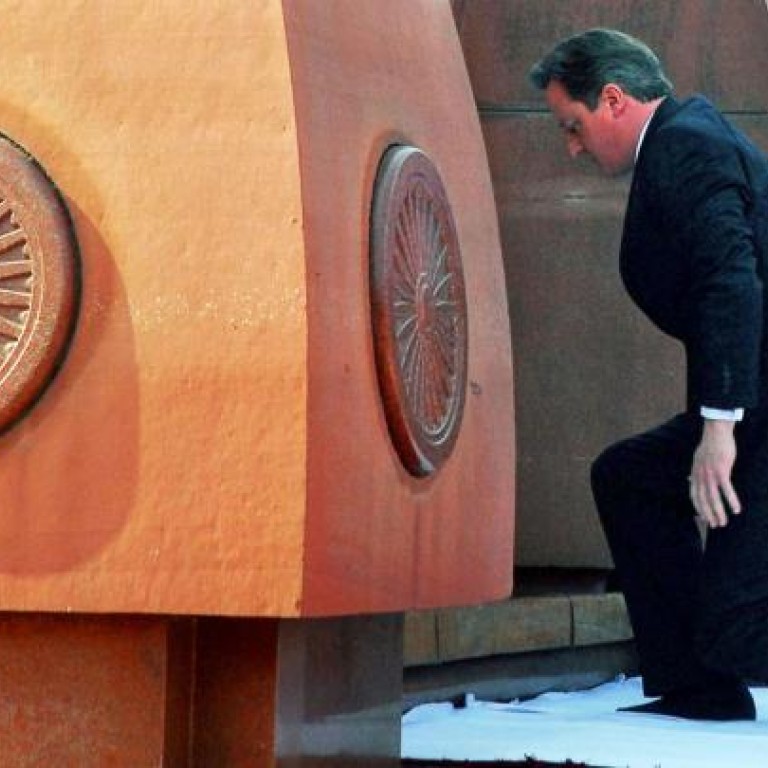
British massacre in India 'deeply shameful', says Cameron
UK leader David Cameron offers condolences over a 1919 slaughter but stops short of an apology during a trip to boost economic ties
British Prime Minister David Cameron described the killing by the British army of hundreds of unarmed civilians in Amritsar in 1919 as "deeply shameful", but stopped short of an apology for a massacre that galvanised India's independence movement.
On the last leg of a three-day trip aimed at forging deeper economic ties, Cameron took the bold decision to visit Amritsar and tackle an enduring scar of British rule on the subcontinent, which ended in 1947.
He laid a wreath at a memorial to the victims at Jallianwala Bagh, where British troops opened fire on unarmed protesters.
In a message in the visitors' book, he wrote: "This was a deeply shameful event in British history and one that [former prime minister] Winston Churchill rightly declared at the time as monstrous.
"We must never forget what happened here. And in remembering we must ensure that the United Kingdom stands up for the right of peaceful protest around the world."
We must never forget what happened here. And in remembering we must ensure that the United Kingdom stands up for the right of peaceful protest around the world
The number of casualties at the Jallianwala Bagh garden is unclear, with colonial-era records showing about 400 deaths while Indian figures put the number killed at closer to 1,000.
Bhusan Behl, who heads a trust for the families of victims, has campaigned for decades on behalf of his grandfather who was killed at the entrance.
He said he was hoping that Cameron would say sorry for the slaughter ordered by a general, Reginald Dyer, which was depicted in Richard Attenborough's film and features in Salman Rushdie's epic book
"A sorry from a top leader would change the historical narrative and Indians would also feel that in some way they can forget the past and move on," Behl said before Cameron made his written remarks.
The move is seen as a gamble by Cameron, travelling with British-Indian parliamentarians, and could lead to calls for similar treatment from other former colonies or victims in India.
In 1997, Queen Elizabeth laid a wreath during a tour of India. She described the Jallianwala Bagh massacre as distressing, but her gaffe-prone husband Prince Philip reportedly said the Indian estimates for the death count were "vastly exaggerated".
